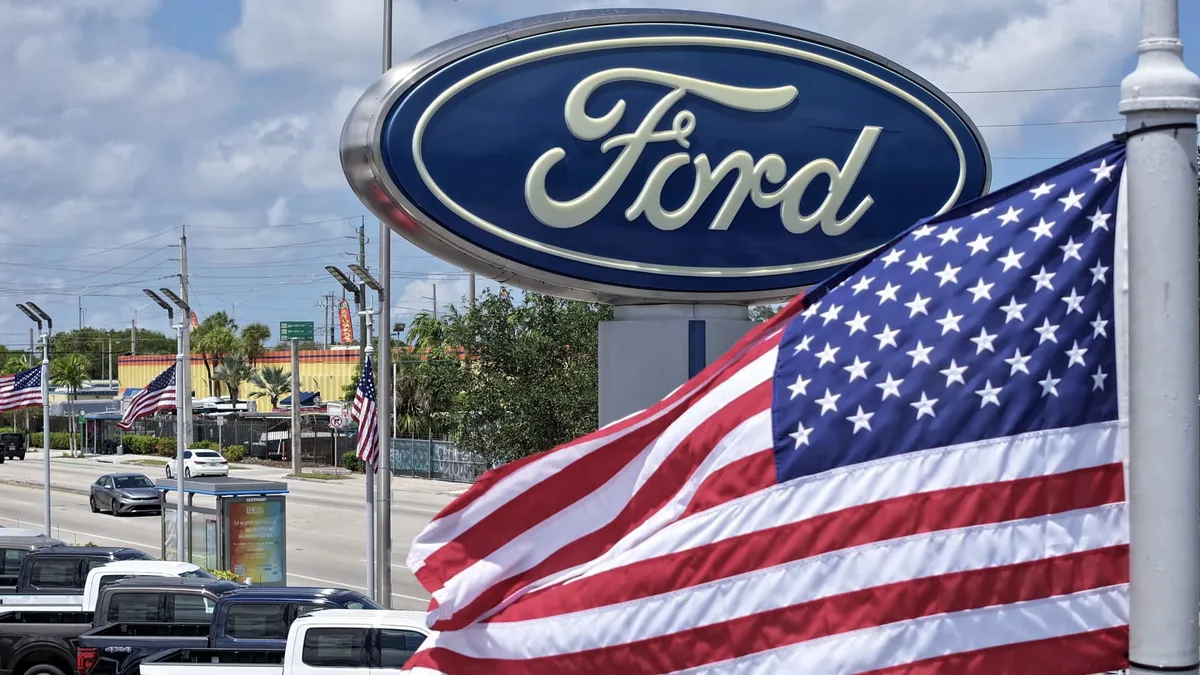
On Monday, Ford Motor Company revealed plans to invest $2 billion in its assembly plant located in Louisville, Kentucky. This strategic investment aims to accelerate the production of more affordable electric vehicles (EVs). This initiative adds to the already planned $3 billion investment for a battery park in Michigan, signaling Ford's commitment to leading the EV market. Together, these projects are expected to create or secure nearly 4,000 new jobs, as stated in a recent news release from the company.
Ford's CEO, Jim Farley, expressed the company’s innovative approach to addressing a significant industry challenge: “We took a radical approach to a very hard challenge: Create affordable vehicles that delight customers in every way that matters – design, innovation, flexibility, space, driving pleasure, and cost of ownership – and do it with American workers.” This vision underscores Ford’s determination to produce quality electric vehicles domestically.
The new Universal EV Program, which focuses on developing low-cost electric vehicles, will kick off with a midsize, four-door electric pickup truck. This vehicle is set to roll off the production line at the Louisville Assembly Plant, with its launch scheduled for 2027. During the company’s latest earnings call, executives hinted at this announcement, referring to it as Ford's next Model T moment, highlighting the significance of this new vehicle.
Ford has announced that the starting price for the upcoming electric truck will be approximately $30,000, a figure that mirrors the cost of the original Model T when adjusted for inflation. In a significant shift towards sustainability, Ford also mentioned that new lithium iron phosphate (LFP) batteries for this family of EVs will be produced domestically, eliminating reliance on imports from China.
During an event in Louisville, Farley acknowledged the challenges facing the automotive industry: “We knew that the Chinese would be the major player for us globally, companies like BYD, new startups from around the world, big technology has their ambition in the auto space. They're all coming for us, legacy automotive companies.” This statement reflects the competitive landscape that Ford is navigating as it works to innovate and provide affordable vehicles amidst evolving technology and competition.
The announcement also comes at a time when Ford and other U.S. manufacturers are adapting to changing EV policies under the current administration, including the end of certain EV tax credits set to take effect after September 30. Although the Louisville plant will secure about 2,200 jobs, it is important to note that the transition to EV production will result in approximately 600 fewer jobs than its current workforce of over 3,000 employees as of April 2024.
In an interview with CNBC's Phil LeBeau, Farley emphasized Ford's ongoing commitment to job creation, stating, “Ford's the only car company in America that's added 13,000 jobs since the recession. We're not going to stop.” This commitment demonstrates Ford's resilience and dedication to the American workforce while navigating the evolving automotive landscape.
In conclusion, Ford's significant investment in the Louisville Assembly Plant represents a major step forward in the company's mission to produce affordable electric vehicles, create jobs, and maintain its competitive edge in the rapidly changing automotive industry.
Correction: This article has been updated to clarify that the Louisville Assembly Plant will secure approximately 2,200 jobs. A previous version misstated the job impact.